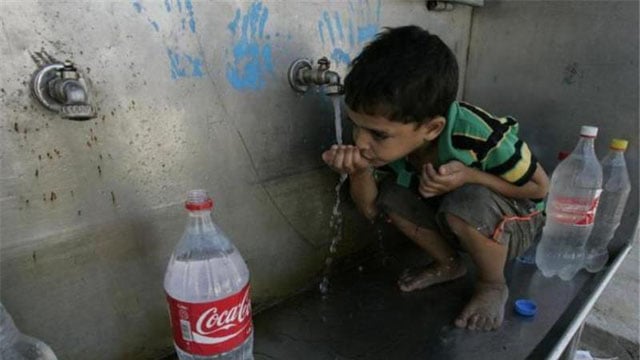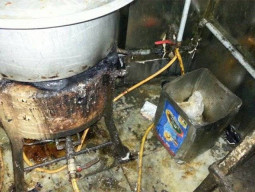
The Supreme Court-formed commission, headed by Justice Mohammad Iqbal Kalhoro, was informed by the members of the task force constituted to resolve water supply and sanitation issues in Sindh, that the main stumbling block in improving issues of potable water and sanitation is financial problems of development projects such as the S-III, establishment of five combined effluent treatment plants in Karachi and completion of the RBOD.
The task force members submitted that such projects are to be completed with the funding of the federal government. They submitted that unless the RBOD is made functional, drainage problems in Sindh cannot be adequately addressed and resolved and unless the S-III development project is installed and completed and the five effluent plants are built, the issue of municipal and industrial waste in Karachi would not be resolved.
Judicial commission submits report after six-week-long fact-finding mission
The taskforce members said these schemes are funded by the federal government but on one pretext or the other, the Centre was not releasing the requisite funds and all the schemes are in limbo.
The commission, in order to know the stance of the federal government on the matter, issued notices to the secretaries of water and power, finance and planning and development departments to appear and explain the position of the federal government on these projects.
The Hyderabad district and sessions judge submitted a report regarding filtration plants and submitted that the condition of filtration plants in Latifabad, Pretabad, LSR and Hala Naka Hyderabad is pathetic, as currently no activity of filtration is going on in the said plants, so much so that even the said facilities, including their lagoons, are without boundary walls.
Hyderabad commissioner to submit report on water quality
The commission directed the Hyderabad commissioner and managing director of the Water and Sanitation Agency (Wasa), Hyderabad, to take immediate measures to rehabilitate the above-mentioned filtration plants and start filtration activities there. The commissioner was directed to take steps to ensure construction of boundary walls at these facilities and submit a compliance report on May 6.
The commission directed the chairperson of the taskforce to ensure water supply in rural and less privileged areas and in this regard he was also directed to submit a report on how many rural water supply schemes are functional.
The Karachi Water and Sewerage Board (KWSB) managing director submitted a report that stated that the board was making round the clock efforts to improve the quality of water and it is in the process of purchasing chlorinators. He claimed that water quality will be substantially improved within 15 days.
Sindh Blamed: Balochistan irked by water shortage
The commission, however, observed that no substantial improvement on the issue of treatment plants in Mehmoodabad and TP-I and TP-III has been achieved despite the Supreme Court's direction. Regarding supply of fully-filtered water, the KWSB head said filtered water will be supplied in the city within 15 days.
Water contamination
The East DIG and Malir SSP submitted that no sand was being lifted from the bed of the Malir River. However, the commission confronted them with the report of the Malir district and sessions judge, which disclosed that sand-lifting from the bed of the Malir River is still going on.
The officers sought four days to file a comprehensive report regarding steps being taken to stop the activity. The East DIG assured that police pickets would be set up at the site to check sand-lifting from the Malir River bed in the future.
The commission directed the Kalri Baghar executive engineer to submit a report on the short-term solution to deal with toxic effluent being dropped in the Phuleli Canal from the Darya Khan pumping station in Hyderabad within 15 days.
Judicial commission seeks reports on solid waste management
It also directed the Sindh advocate-general and local government secretary to submit reports on the issue of transfer of betterment charges from the Sindh Building Control Authority and Hyderabad Development Authority to KWSB and Wasa respectively.
Hospital waste
Health Secretary Fazalullah Pechuho submitted that not only public-sector hospitals but also private ones have been taken on board to comply with the Hospital Waste Management Rules, 2014, and some preliminary meetings have been held. He was of the view that within a short time some improvements would be visible as the health department was continuously striving to improve the situation and sought time to submit relevant report on May 6.
The commission directed the public, private and federal government-run hospitals of the province to submit reports on the issue of provision of potable water and management of hospital waste at their respective hospitals.
Electricity
The chief engineer of the Hyderabad Electric Supply Company Raham Ali Otho submitted that out of 105, 67 connections have been restored to water or drainage schemes and the remaining would be provided within one month and soon after the payment of challan.
Potable water and sanitation: Judicial commission finds fault with reports
The commission issued a notice to the chief executive of the Sukkur Electric Power Corporation to explain non-provision of 120 electric connections either to water supply or drainage schemes in which demand notes or challans have already been paid. K-Electric official Amir Zia assured that K-Electric would restore electric supply to water supply schemes in Karachi.

















COMMENTS
Comments are moderated and generally will be posted if they are on-topic and not abusive.
For more information, please see our Comments FAQ